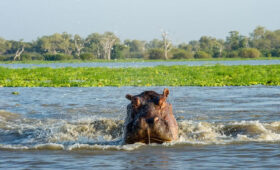Learn About Bride Price Traditions in Tanzania
Understand the Custom, Meaning, and Modern Perspectives
One of the most fascinating and widely practiced cultural traditions across Tanzania is the bride price, also known locally as mahari. While often misunderstood by outsiders, this centuries-old custom is deeply rooted in Tanzanian culture and plays a significant role in how communities view marriage, family, and respect.
At Mandari Travel, we create opportunities for respectful, educational dialogue around this tradition as part of our cultural immersion tours, inviting you to learn, not judge, and gain a fuller understanding of Tanzanian society.
What Is the Bride Price (Mahari)?
The bride price is a symbolic gift, often in the form of livestock, money, or goods, given by the groom’s family to the bride’s family as part of the marriage agreement. It is not a “purchase” of the bride, but rather a gesture of gratitude, unity, and respect that strengthens ties between families and communities.
Common Forms of Bride Price:
- Cows or goats (especially among Maasai, Sukuma, and Barabaig)
- Cash or mobile money (in more urbanized or mixed-tradition settings)
- Household goods or clothing
- Bags of grain, beer, or traditional gifts
Cultural Significance of the Bride Price
Far from being transactional, the mahari system carries deep cultural value:
- Family bonding: It’s a communal event involving negotiations and celebration.
- Ceremony and music: Bride price ceremonies are often accompanied by singing, drumming, and dancing.
- Respect and responsibility: It symbolizes the groom’s ability to support his new family and shows respect for the bride’s parents.
- Community connection: The event can be attended by neighbors, extended family, and elders,reinforcing social ties.
How Traditions Vary Across Ethnic Groups
Tanzania is home to over 120 ethnic groups, each with their own version of bride price traditions:
- Maasai: Often involves livestock, especially cows, as a sign of wealth and respect.
- Chagga (Kilimanjaro region): May combine cash with ceremonial drinks and clothing.
- Hehe (Iringa): Bride price discussions can last several days, involving long negotiations and community feasts.
- Zaramo (Coastal area): Blend Islamic and traditional customs, with symbolic items and dowry elements.
Modern Perspectives on Bride Price
In modern Tanzania, bride price practices are evolving:
- Some urban families now agree on symbolic or token gifts.
- Many young couples discuss bride price openly and collaboratively.
- Education is changing how younger generations approach tradition, with some embracing it, others simplifying it.
- Dialogue around gender equality and cultural preservation is growing.
At Mandari Travel, we encourage thoughtful conversations with locals, offering context, not judgment.
Experience the Tradition Respectfully
Through our cultural tours, you may have the chance to:
- Visit a community during a pre-wedding or bride price ceremony
- Participate in traditional music and dance events tied to marriage customs
- Sit down with elders or community leaders to learn about changing views on mahari
- Combine your visit with cooking classes, village walks, or storytelling sessions
All experiences are designed for respectful cultural exchange and are hosted with the full cooperation of local families and communities.
Book a Cultural Insight Tour with Mandari Travel
Interested in learning more about the traditions that shape Tanzanian society? Let Mandari Travel guide you with care, accuracy, and cultural sensitivity. Whether you’re a curious traveler, student, or cultural researcher, we’ll create an experience that’s both educational and meaningful.
Email: info@mandaritravel.com
Call or WhatsApp: +255 750 900 811
Or simply fill out the form below to request a quote or custom itinerary.




